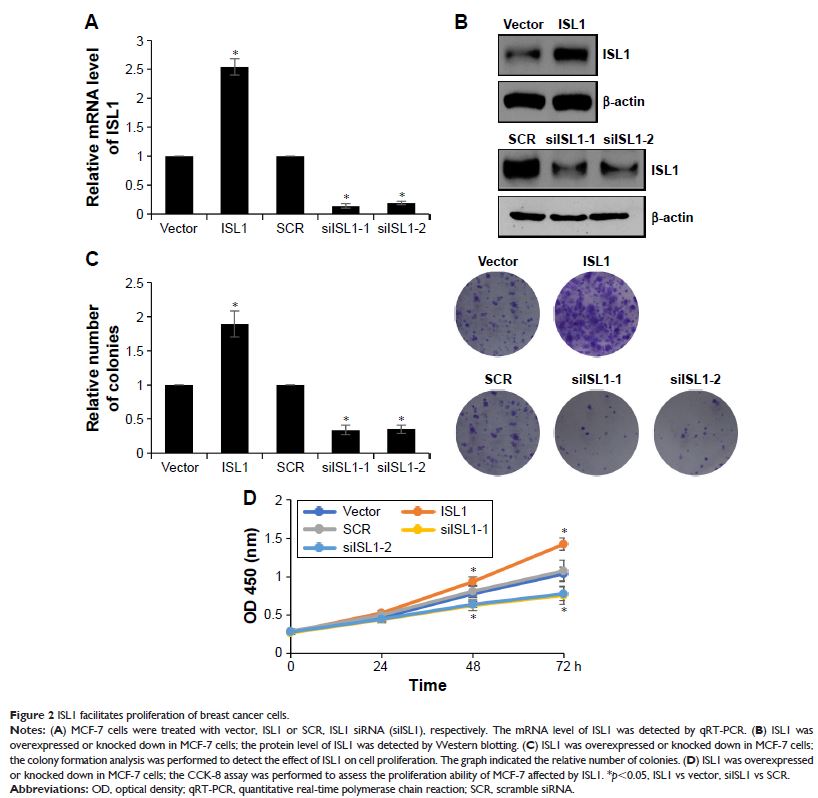108985
论文已发表
注册即可获取德孚的最新动态
IF 收录期刊
- 3.4 Breast Cancer (Dove Med Press)
- 3.2 Clin Epidemiol
- 2.6 Cancer Manag Res
- 2.9 Infect Drug Resist
- 3.7 Clin Interv Aging
- 5.1 Drug Des Dev Ther
- 3.1 Int J Chronic Obstr
- 6.6 Int J Nanomed
- 2.6 Int J Women's Health
- 2.9 Neuropsych Dis Treat
- 2.8 OncoTargets Ther
- 2.0 Patient Prefer Adher
- 2.2 Ther Clin Risk Manag
- 2.5 J Pain Res
- 3.0 Diabet Metab Synd Ob
- 3.2 Psychol Res Behav Ma
- 3.4 Nat Sci Sleep
- 1.8 Pharmgenomics Pers Med
- 2.0 Risk Manag Healthc Policy
- 4.1 J Inflamm Res
- 2.0 Int J Gen Med
- 3.4 J Hepatocell Carcinoma
- 3.0 J Asthma Allergy
- 2.2 Clin Cosmet Investig Dermatol
- 2.4 J Multidiscip Healthc

ISL1 可在乳腺癌中得到上调并促进细胞增殖、侵袭和血管生成
Authors Li L, Sun F, Chen X, Zhang M
Received 17 June 2017
Accepted for publication 28 September 2017
Published 14 February 2018 Volume 2018:11 Pages 781—789
DOI https://doi.org/10.2147/OTT.S144241
Checked for plagiarism Yes
Review by Single-blind
Peer reviewers approved by Dr Colin Mak
Peer reviewer comments 2
Editor who approved publication: Dr Samir Farghaly
Abstract: ISL1 plays a key role in several cancers, including
pheochromocytoma, gastrointestinal, pancreatic, and lung tumors and bile duct
carcinoma. In order to elucidate the role of ISL1 in breast cancer, we
performed quantitative real-time polymerase chain reaction and Western blotting
analysis, and we found that ISL1 was upregulated in breast cancer cells and
tissues. Moreover, high expression of ISL1 was correlated with tumor size,
metastasis, and poor prognosis. Colony formation analysis and CCK-8 analysis
revealed that ISL1 facilitated breast cancer cell proliferation. In addition,
wound healing analysis and transwell invasion analysis demonstrated that ISL1
played a role in cell migration and invasion. Interestingly, the expression of
ISL1 was also associated with the expression of vascular endothelial growth
factor (VEGF) in breast cancer, and ISL1 promoted angiogenesis in breast
cancer. In conclusion, reducing the expression of ISL1 suppresses
proliferation, migration, invasion, and angiogenesis in breast cancer,
suggesting that ISL1 might serve as a novel molecular therapy target in breast
cancer.
Keywords: ISL1,
proliferation, metastasis, angiogenesis, breast cancer
